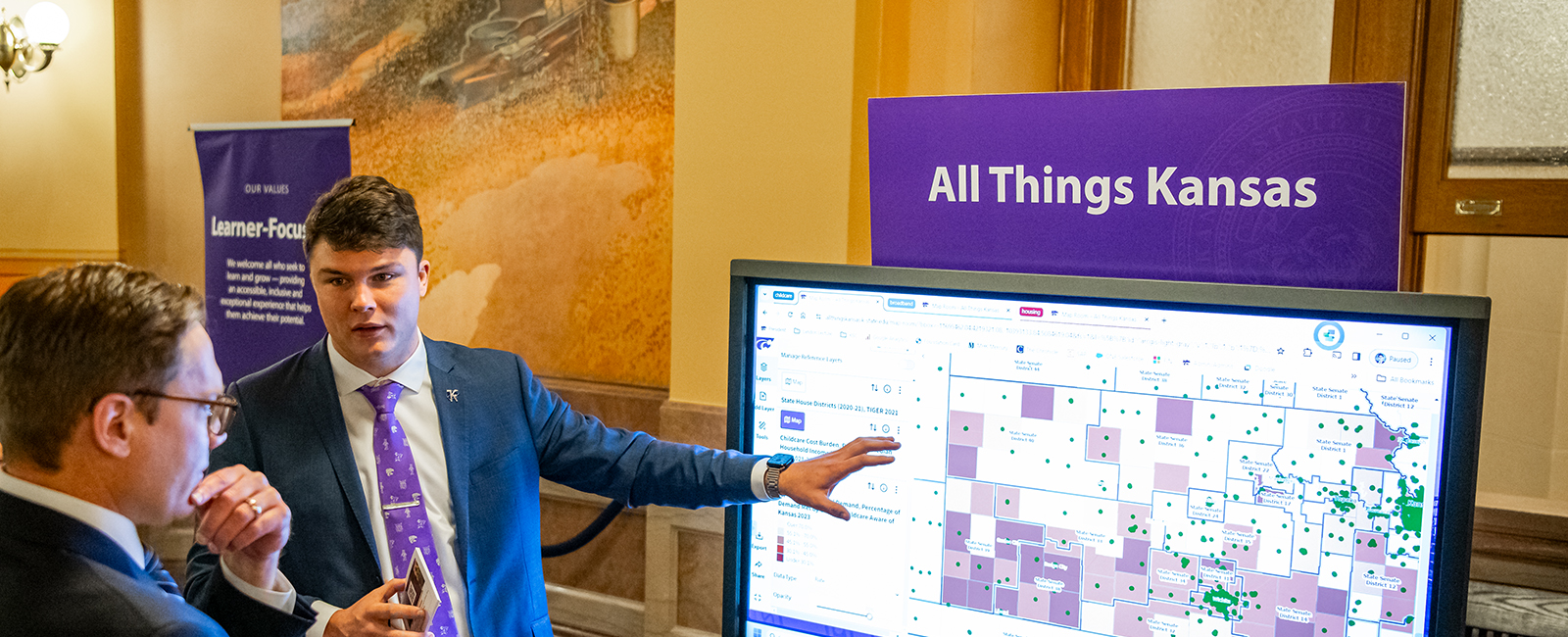
Fostering Community Health and Well-Being
K-State is building partnerships to tackle the most pressing and imperative challenges facing Kansas communities, because if we do good in Kansas, we can do good for the world.
Creating Connections, Supporting Communities
As the nation's first operational land-grant university, Kansas State University understands the importance of outreach with Kansas communities. And through our consistent and intentional engagement and vast statewide extension network, no university is more tuned in to assist with the most pertinent challenges facing Kansans. Whether we are forging partnerships to enhance health care access, leading sustainable housing initiatives, collaborating to bolster child care solutions, or continuing to champion accessible education within our state, K-State keeps the needs of Kansans at the forefront.
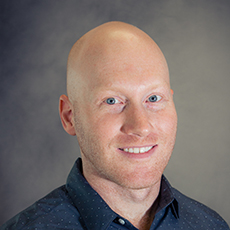 Michael Gibson is an Associate Professor in the Department of Architecture at Kansas State University, teaching design studio, environmental systems, and research seminars since joining the faculty in 2011. Gibson is the faculty lead of the Net Positive Studio, an ongoing service-learning course in the K-State architecture department, where students collaboratively research, design, and construct affordable, net zero homes with a variety of community partners across the region. The studio’s name represents its mission to demonstrate homes that are not only energy efficient, but give back to homeowners and communities through the many economic and wellness benefits of sustainable homes. Following its inception in 2018, the studio has designed, prefabricated, and built several prototype homes with its partners, who have raised millions in additional financing and grants to duplicate high performance housing designed by K-State student teams.
Michael Gibson is an Associate Professor in the Department of Architecture at Kansas State University, teaching design studio, environmental systems, and research seminars since joining the faculty in 2011. Gibson is the faculty lead of the Net Positive Studio, an ongoing service-learning course in the K-State architecture department, where students collaboratively research, design, and construct affordable, net zero homes with a variety of community partners across the region. The studio’s name represents its mission to demonstrate homes that are not only energy efficient, but give back to homeowners and communities through the many economic and wellness benefits of sustainable homes. Following its inception in 2018, the studio has designed, prefabricated, and built several prototype homes with its partners, who have raised millions in additional financing and grants to duplicate high performance housing designed by K-State student teams. When asked about the Net Positive Studio, Gibson shared, “Our mission is to research, develop and demonstrate housing models that can support households and communities. Through lean construction and thoughtful design, the homes intend to foster the quality of life and well-being of residents by freeing up income, minimizing required maintenance, improving social connections and building restorative connections to the outdoors.”
Other research and coursework by Michael addresses energy use and technologies in buildings and has involved experimentation with full-scale prototypes, computer simulation, and numerous collaborations with industry and practice. His past projects were awarded a 2008 American Institute of Architects RFP Research Grant and a 2013 NCARB Award for the Integration of Practice and Education.
Experts in Focus: Bronwyn Fees and Bradford Wiles
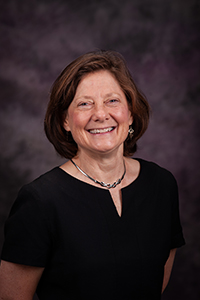 Bronwyn Fees serves as Associate Dean for Academic and Faculty Affairs in K-State's College of Health and Human Sciences. Her research focuses on physical activity of young children within programs, early care and education programs, affordances of the physical environment for children with autism and international perspectives on early education.
Bronwyn Fees serves as Associate Dean for Academic and Faculty Affairs in K-State's College of Health and Human Sciences. Her research focuses on physical activity of young children within programs, early care and education programs, affordances of the physical environment for children with autism and international perspectives on early education. 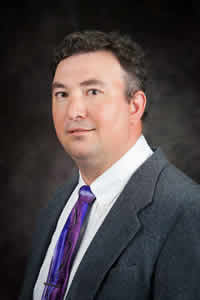 Bradford Wiles serves as an associate professor and extension specialist in K-State's College of Health and Human Sciences. Wiles' program of research focuses on building health and resilience in vulnerable families. Specifically, he leverages the strengths of the Extension system’s multi-state research project, Rural Families Speak about Resilience (NC1171), focusing his efforts on understanding resilience in rural, low-income, ethnically, and racially diverse families with young children.
Bradford Wiles serves as an associate professor and extension specialist in K-State's College of Health and Human Sciences. Wiles' program of research focuses on building health and resilience in vulnerable families. Specifically, he leverages the strengths of the Extension system’s multi-state research project, Rural Families Speak about Resilience (NC1171), focusing his efforts on understanding resilience in rural, low-income, ethnically, and racially diverse families with young children.Hear more from Bronwyn Fees and Bradford Wiles
Listen to an interview by Jeff Wichman with Bronwyn Fees and Bradford Wiles on the weekday radio podcast, Sound Living.
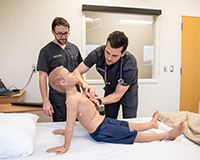 In May 2024, the
In May 2024, the 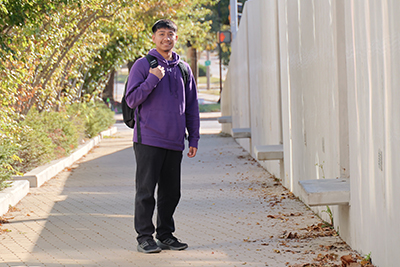 Bryant Tamayo is going to be a Formula One team engineer.
Bryant Tamayo is going to be a Formula One team engineer.